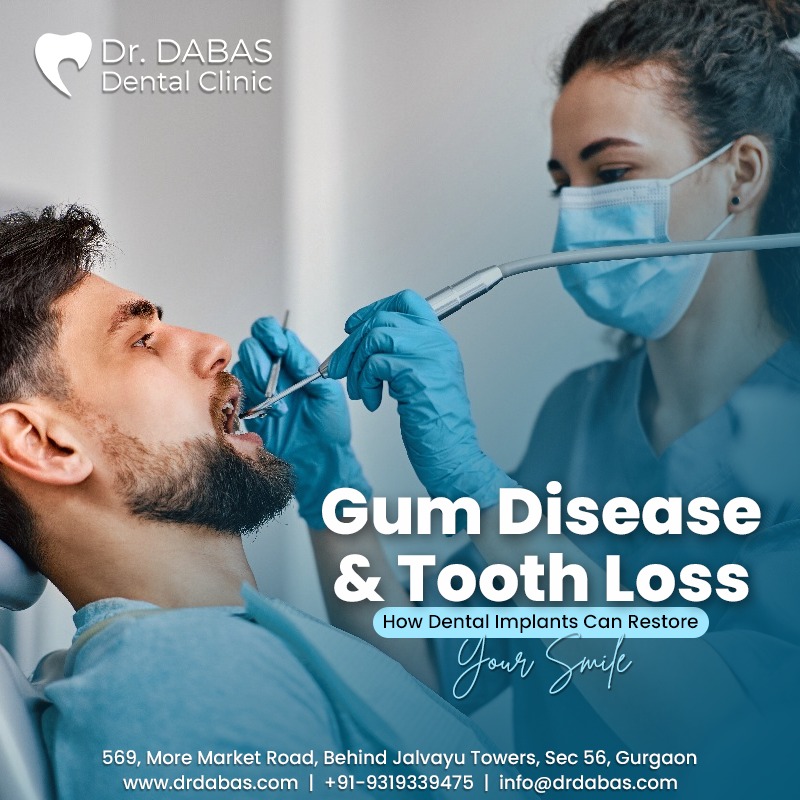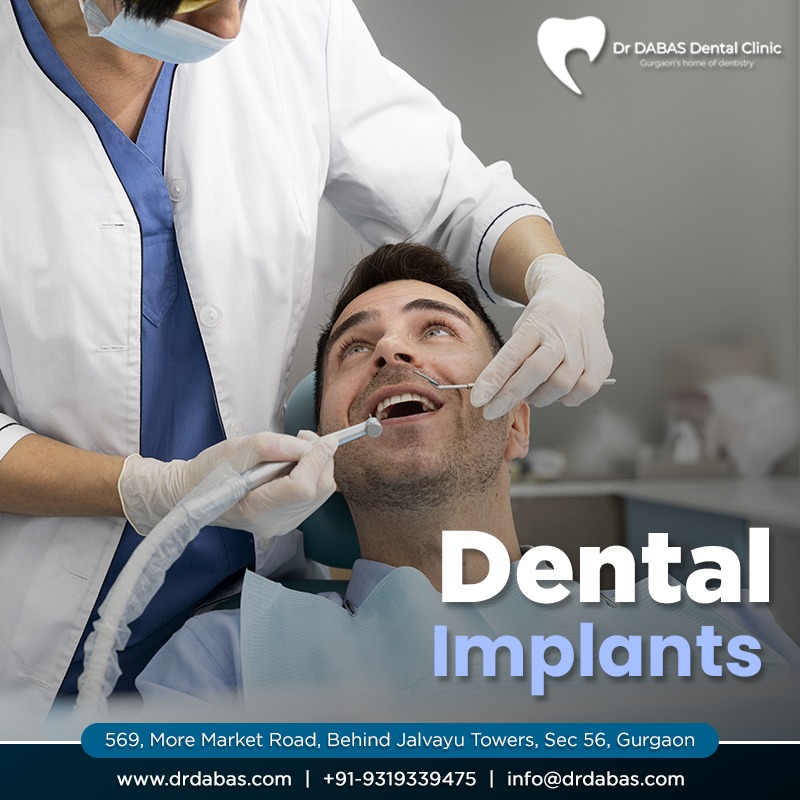Gum disease, also known as periodontal disease is one of the most common yet serious dental problems that people usually face.
Continue readingDental Implants – Dr Dabas Dental Clinic
Dental Implants – Dr Dabas Dental Clinic

What is Dental Implants?
Dental implants are a type of dental restoration that is used to replace missing teeth. They are designed to mimic the natural structure of a tooth, consisting of an artificial tooth root and a crown.
The dental implant itself is a small, titanium post that is surgically inserted into the jawbone. Titanium is commonly used because it is biocompatible, meaning it can fuse with the surrounding bone through a process called osseointegration. This integration provides a stable foundation for the dental implant.
What Is The Best Age For Dental Implants?
The ideal age for dental implants can vary depending on individual factors, such as the overall oral health, jawbone development, and the specific needs of the patient. Dental implants are a popular and effective solution for replacing missing teeth, and they can be considered at different stages of life. Here are some general guidelines regarding the best age for dental implants:
Fully Developed Jawbone: The jawbone should be fully developed before dental implants are placed. Jawbone development typically occurs during adolescence, around the ages of 16 to 18 in females and 18 to 21 in males. It’s important for the jawbone to be mature enough to support the dental implant and ensure long-term stability.
Stabilized Oral Health: Before considering dental implants, it’s crucial to have a healthy oral environment. Existing dental issues, such as gum disease or tooth decay, should be addressed and treated beforehand to minimize the risk of complications with the implants. Good oral hygiene practices and regular dental check-ups are essential to maintain optimal oral health.
Post-Growth Stability: While dental implants can be placed in adults of any age, it’s generally recommended to wait until growth and development have stabilized. This ensures that the positioning and alignment of the implants remain unchanged as the facial structures settle.
Individual Considerations: Each patient’s case is unique, and there may be circumstances where dental implants are appropriate at an earlier or later age. Factors such as bone density, overall health, and specific dental needs should be taken into account when determining the optimal timing for dental implant placement.
It’s important to consult with a dental professional, such as a prosthodontist or oral surgeon, who specializes in dental implants. They will evaluate your oral health, review your medical history, and conduct a thorough examination to determine the best timing and suitability of dental implants for your specific situation. They can provide personalized advice and recommendations based on your unique needs and goals.


